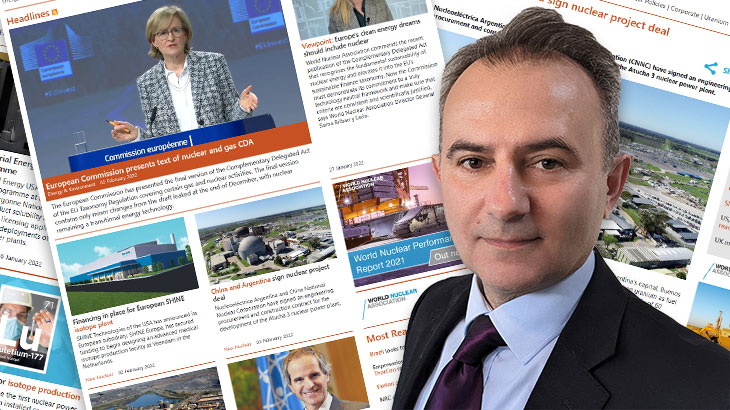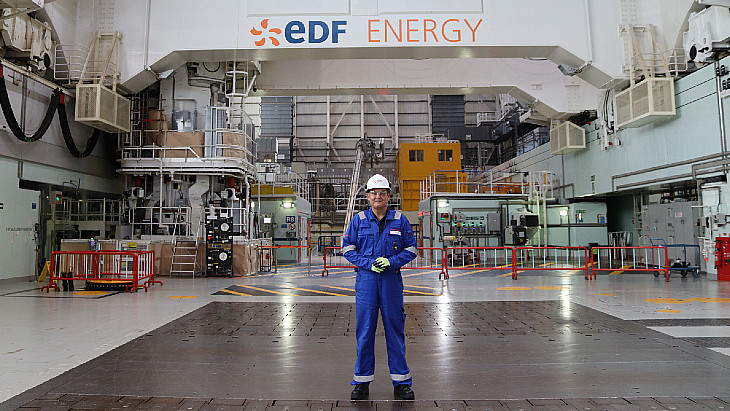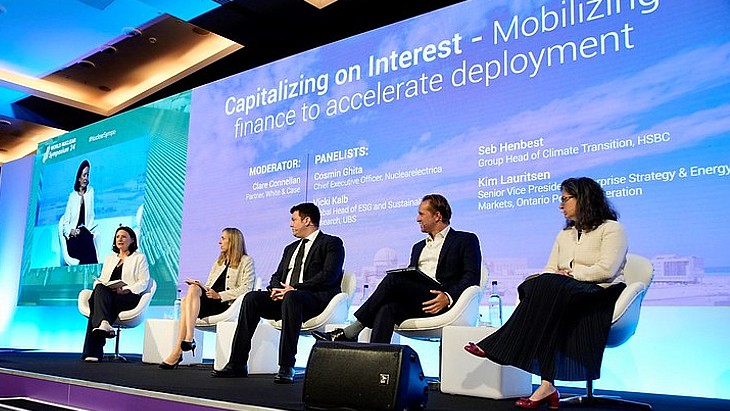Viewpoint: WNN marks anniversary and looks to future

Since launching in 2007, World Nuclear News - or WNN as it is widely known - has built a loyal and informed audience with its authoritative, clear and objective reporting of the latest developments in the industry.
It has been the place to turn to get the facts at times of crisis - such as events in Fukushima in 2011 - and its daily and weekly news emails have become a must-read for those inside and outside the industry wanting to get their news in a handy catch-up format (if you haven’t done so already, you can sign up here).
The renewed interest in nuclear power in countries across continents has largely been fuelled by the promise of providing a reliable supply of carbon-free electricity as the world wrestles with achieving the goal of getting to net-zero emissions by the middle of the century.
But nuclear is also being seen as an attractive option for countries looking to meet their own energy needs without having to overly rely on imports in an uncertain world. This has only been heightened by the soaring increase in natural gas prices. Here’s the top 10 countries by nuclear capacity as of 1 September, 2021:

And with new developments promising quicker and ever-more safe nuclear power plants - plus the prospect of small modular reactors which bring more flexibility on siting and can reach remote areas - it is no surprise to see how much capacity was in the works as of 1 September, 2021:

The industry continues to face the challenge to win over critics - it has been innovating for decades to make nuclear plants safe, while reprocessing of used fuel can cut the amount of radioactive waste from the industry. The debate continues over how best to store it - such as centralised large-scale storage deep underground - and WNN has an entire section dedicated to waste and recycling.
And as 2022 gets under way these issues are at the heart of the European Union’s taxonomy plan - which includes nuclear as an energy source which qualifies for the funding benefits of being categorised as “sustainable”.
France and Germany find themselves on opposite sides of what promises to be a key issue for the industry, and the European Union, in the months to come.
Elsewhere in the world Chinese, Russian, US, South Korean and European companies are seeking to export their expertise and make nuclear energy an option for more countries around the globe.
These developments are seen by some purely in terms of world powers seeking to build spheres of influence. But helping countries get nuclear power can be a force for good in terms of development and tackling global inequality.
Last year, the International Atomic Energy Agency launched the Nuclear Saves partnership to expand its efforts to support development projects in low- and middle-income countries. World Nuclear Association, WNN's parent, is an advocacy partner in that programme. Recently, a Perspectives article for WNN by Princy Mthombeni set out how nuclear power can help to solve the triple threats of poverty, inequality and unemployment in Africa, while also mitigating against climate change.
Meanwhile there are the spin-offs from the nuclear industry in areas such as medicine and even animal protection - helping to save the Rhino - as well as a supplier of hydrogen. WNN also benefits from the vast array of Information Papers and other publications produced by the World Nuclear Association - to see how comprehensive they are, here’s one on Fukushima.
The value of news is that no-one knows for sure what is going to happen next, but one thing for sure is that nuclear will be a subject people are interested in.
After 15 years of growth - and with more than 5 million page views in 2021 - all of us at WNN are looking forward to continuing to develop its coverage of all things nuclear for many years to come.
Got a story for WNN? Get in touch










